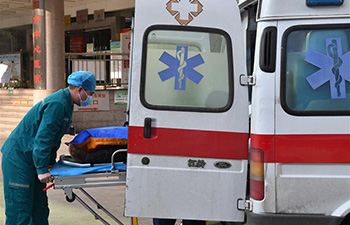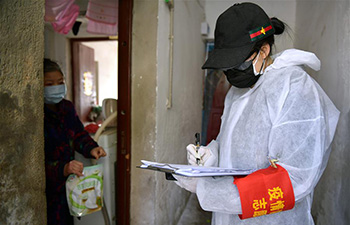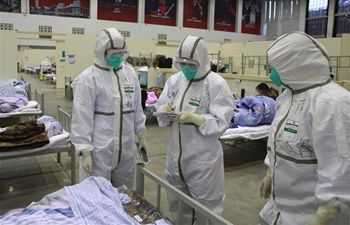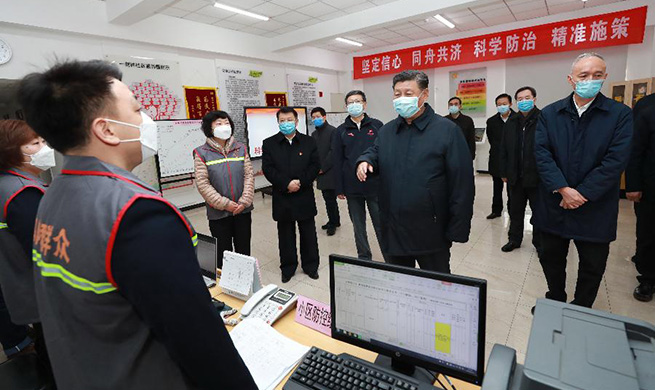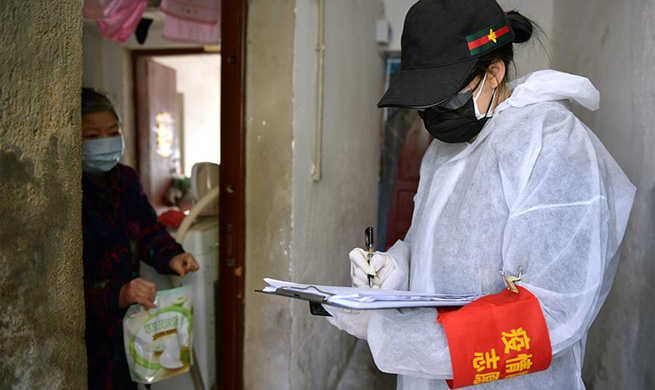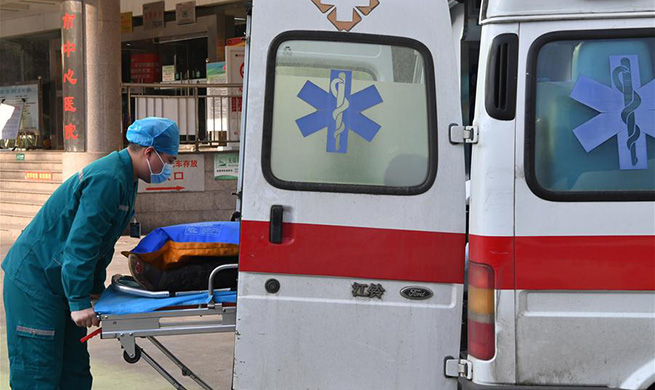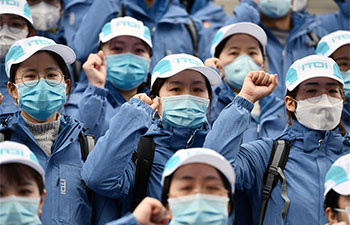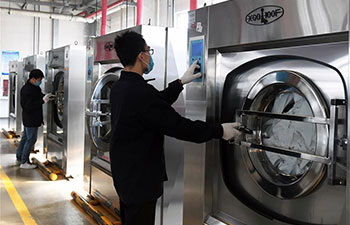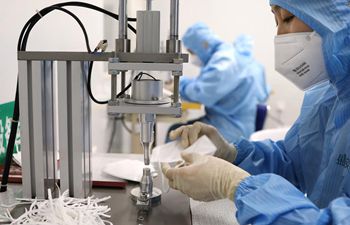ATHENS, Feb. 10 (Xinhua) -- The legacy of the debt crisis which broke out in Greece in 2009 is heavy also on the environment, in particular, air quality in urban centers, due to a shift to biomass burning during winter season, resulting in health problems and early deaths, according to Greek officials and experts.
Faced with skyrocketing prices of heating oil and electricity due to tax hikes and a yet small network of natural gas, Greeks turned to fireplaces and heating stoves and in 2013 the state allowed the burning of biomass in cities.
As a result, Athens and several urban centers during winters have been choking due to smog which has a toll on residents' health, scientists told Xinhua.
"According to the European Environment Agency (EEA), early deaths due to environmental pollution of nitrogen dioxide in Greece in 2016 reached 2,900. It is not something we can be indifferent about. If I am not mistaken they surpass deaths in traffic accidents," Greek Environment and Energy Minister Kostis Hatzidakis told a recent conference in Athens, citing a report published in autumn.
According to the EEA report, in 2016 in Greece 12,900 premature deaths were linked to exposure to fine particulate matter of diameter of less than 2.5 micrometers (PM 2.5) and in the same year, about 400,000 early deaths in the EU were attributed to air pollution linked to road transport, industry, agriculture and households, Nikolaos Mihalopoulos, director of the Institute for Environmental Research and Sustainable Development at the National Observatory of Athens, noted while speaking to Xinhua.
The challenge concerns many European cities as residents are exposed to air pollution levels exceeding the guidelines and limits set by the EU and World Health Organization (WHO), but in Greece's case, the situation in urban centers was downgraded in recent years due to the new trend of biomass burning, Alexandros Papayannis, Professor of Environmental Physics at the National Technical University of Athens, explained.
"The crisis held a significant role in emissions of microparticles... We were recording a decreasing trend generally until shortly before biomass burning was allowed. During the crisis, a few polluters decreased because there were fewer cars on the streets of (Attica's) basin (because of increased gas cost), we are talking about Athens," he said.
"From 2013, it has been allowed to burn biomass in Athens and other urban centers, which was banned until then. As a result, we are recording in Greece increased concentrations of particles with a diameter smaller than 2.5 micrometers in comparison with other European cities where biomass burning is not allowed," the professor noted.
Papayannis is one of the coordinators at Panhellenic infrastructure for Atmospheric Composition and climate change (Panacea), a project launched two years ago, aimed to improve monitoring of atmospheric composition and climate change in the country.
Scientists from several Greek universities and research institutes have been taking measurements regularly in at least seven cities, including the capital. During the winter, in many cases concentrations of PM 2.5 exceeding the annual daily EU limit value and WHO limits were registered.
Measurements and estimates vary, but on average after 2013 in Athens during the wintertime, for example, emissions linked to extensive wood burning contribute by 40 percent to air pollution, noted Mihalopoulos, citing reports he has also co-authored.
Traditional fireplaces and stoves burning wood emit on average 30 times more microparticles than oil burning in a modern central heating system, the expert stressed.
It has been scientifically proven beyond doubt that long-term exposure to particles linked to biomass burning may lead to many health problems, including cancer, Papayannis added.
"Athens has a large rate of premature deaths of various illnesses, including cancer, because of air pollution. It is difficult to make precise estimates because cancer does not appear overnight," Evangelos Filopoulos, president of the Hellenic Cancer Society, told Xinhua.
The society issued in January once again a press release warning about the effect of biomass burning on health, which is equivalent to pollution linked to car use, he noted.
"Governments should provide people with economic and clean heating sources and we are referring to natural gas, good quality oil, and electricity. Governments should keep prices low so that people will not have to resort to unhealthy solutions," Filopoulos said.
"They should ban burning of wood, the circulation of diesel cars; they should renew the fleet of taxis and improve mass transport services where natural gas should be used or electricity for trolleybuses..." Filopoulos advised. (1 euro = 1.10 U.S. dollars)
